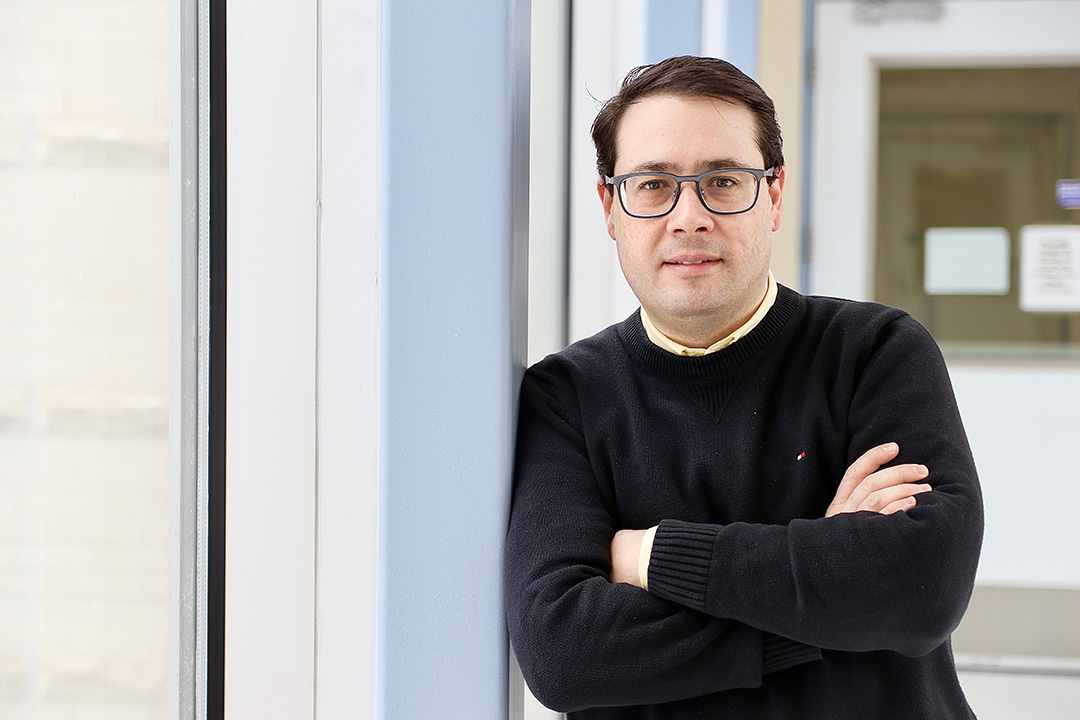
USask dentistry professor passionate about teaching and research
For Dr. Walter Siqueira (DDM), dentistry is in his blood.
By Jenna MortisThe new award-winning professor and internationally renowned researcher in the College of Dentistry at the University of Saskatchewan (USask) followed in his father’s footsteps as a dentist, making the decision to go to dental school at the age of 17, fresh out of high school in Brazil.
At school he quickly realized his passion for research, and soon began collecting saliva for his studies. Once Siqueira finished dental school, he worked for a couple of hours a week in his father’s clinic, but spent the rest of his time at university doing what he liked most: research and teaching students.
“To be a researcher, I can work in a company, I can work in an institute, but if you want to be a professor, you need to have this contact with the students and you need to translate what you have as a researcher to the students. And I love to do that,” he said.
Siqueira has been recognized with many awards for his research work. These awards include the 2012 Salivary Researcher of the Year award from the Salivary Research Group and the 2019 International Association for Dental Research Distinguished Scientist Award, which is the most prestigious international award in oral health. Siqueira has also received numerous grants for his research, including a recent $1.4 million grant from the Canadian Institutes of Health Research to identify biomarkers for Chronic Fatigue Syndrome.
In addition to be being an award-winning researcher, Siqueira is also a decorated professor. He is a recipient of the W.W. Wood Award for Excellence in Dental Education and was awarded the title of Faculty Scholar at Western University, where he was located before moving to USask.
Siqueira believes it is important for research faculty members to have regular contact with students to help teach them critical thinking and problem solving in systematic ways.
“When I go to give the lectures, I don’t want to make new Walter Siqueiras, salivary researchers. What I want is that when finished the lectures, they have a kind of critical thinking that they could use to treat a patient and correlate the dental technical component with the biomedical-oral biology science.”
While Siqueira is looking forward to teaching, he is also excited about his upcoming research.
“I’m working more and more in precision medicine, precision dentistry in terms of salivary biosensors for oral health and especially for dental caries,” he said.
His idea is to glue a small device to a tooth that can send messages via Bluetooth to your smart phone to let you know when it’s time to visit your dentist.
While his current research is specific to his area of expertise in dental caries, this technology can be expanded to other health issues including diabetes, systemic infections and heart diseases.
Siqueira notes that the College of Dentistry at USask is one of the strongest clinical teaching programs in Canada, and now it is working on expanding its research.
“I think in the next four to five years we can compete to be the top three in terms of research and in terms of clinical teaching.”
Siqueira said he is enjoying being a part of the USask community, but what he remains most excited about is his research and teaching his students.
“I really like this life, I like this job,” he said. “I like to work with saliva, I like to be in a dental school, I like to be a professor.”

